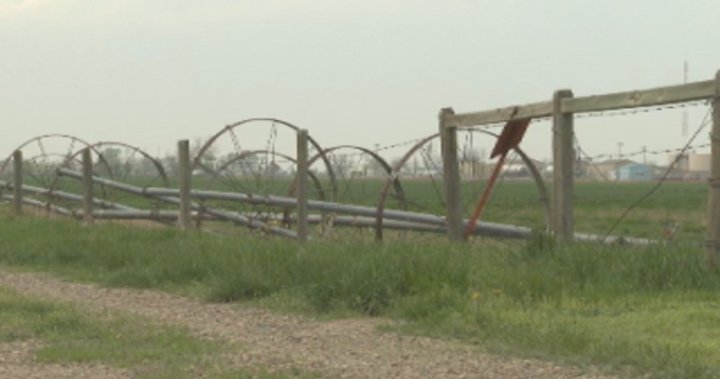Allison Davie of North Paddock Farms is cautiously optimistic about the upcoming irrigation season, despite facing many unknowns. She is focusing on high-value crops such as potatoes and adjusting irrigation plans based on the amount of rain received throughout the season. David Westwood from Saint Mary River Irrigation District shares Davie’s optimism but acknowledges the challenges that lie ahead. He mentions the possibility of raising allocation levels later in the season if precipitation levels remain steady, but emphasizes the need to monitor the snowpack melting and additional precipitation before making any decisions.
The City of Lethbridge reports that the water levels in the Old Man, St. Mary, and Waterton reservoirs are below normal, with all three currently sitting below 50% capacity. Davie explains that they have had to reassess their cropping priorities, focusing on crops that require less water, such as potatoes, seed canola, and timothy hay. Despite having a plan in place, Davie acknowledges that this growing season will be challenging due to the need to carefully manage water resources to last until the end of September.
The irrigation season will be demanding for farmers like Davie, who must balance the need to water their crops with the limited water supply available. Davie mentions that they are making tough decisions, such as not growing high-water allotment crops like pulses, in order to prioritize high-value crops that require irrigation. She emphasizes the importance of careful calculations and planning to ensure that they have enough water to sustain their crops throughout the season, especially with the uncertainty of how much rain will fall in the coming months.
Despite the challenges, both Davie and Westwood remain hopeful that the season will be successful if they can adapt to changing conditions and make timely adjustments to their irrigation plans. Westwood suggests that increased precipitation in June could potentially improve the situation for farmers and lead to a higher allocation of water later in the season. However, both Davie and Westwood emphasize the need to monitor the weather patterns, snowpack melting, and overall precipitation levels before making any significant changes to their irrigation strategies.
Overall, farmers in the region are facing a difficult growing season due to below-normal water levels in the reservoirs and the need to carefully manage irrigation resources. Davie and Westwood are optimistic about the potential for improved conditions in the coming months but understand the need to remain flexible and make adjustments as needed. By prioritizing high-value crops, making tough decisions on cropping priorities, and closely monitoring water usage, farmers like Davie are working to ensure a successful harvest despite the challenges presented by the current water supply situation.













